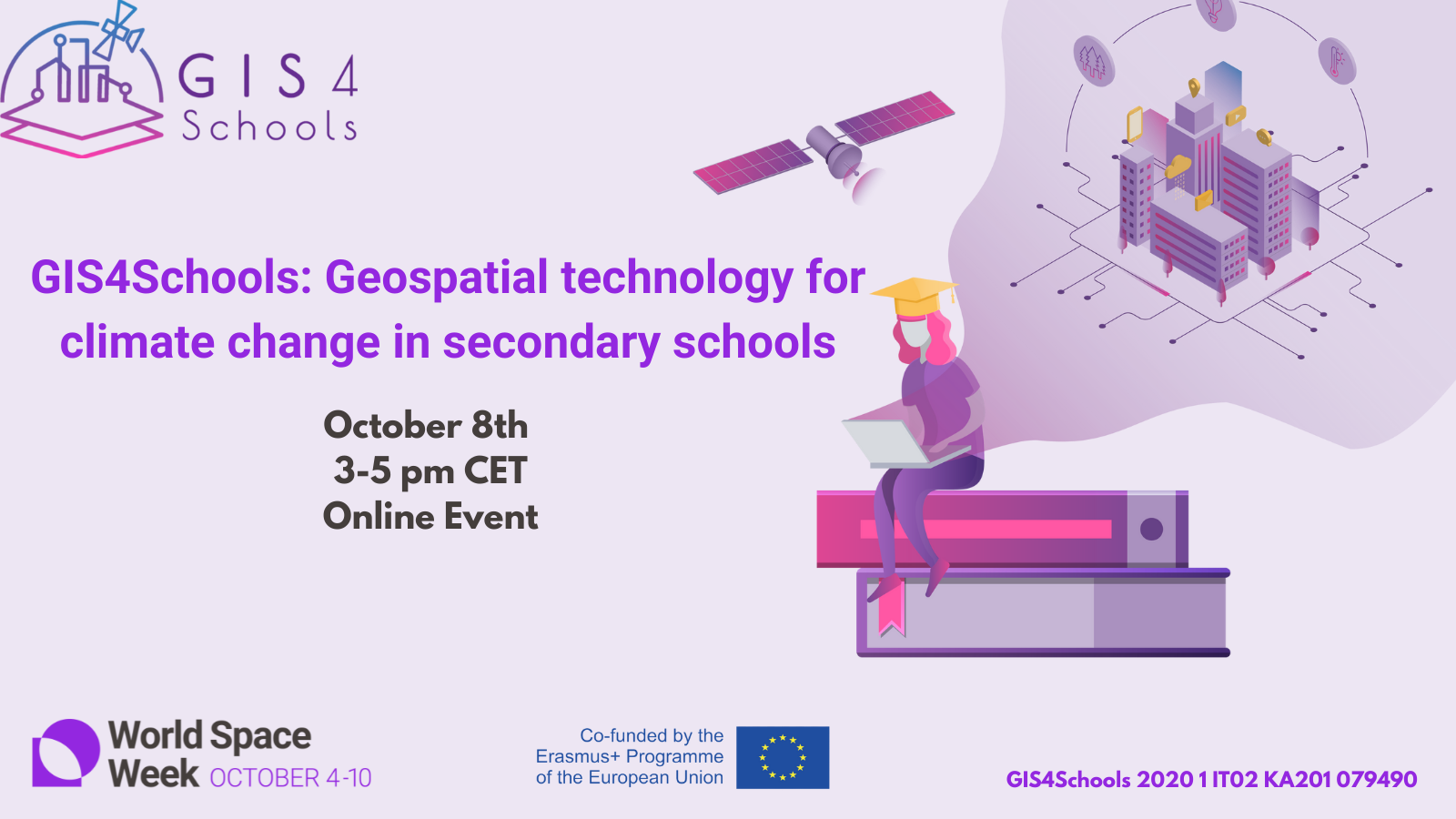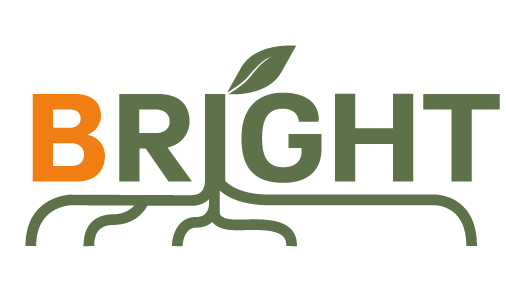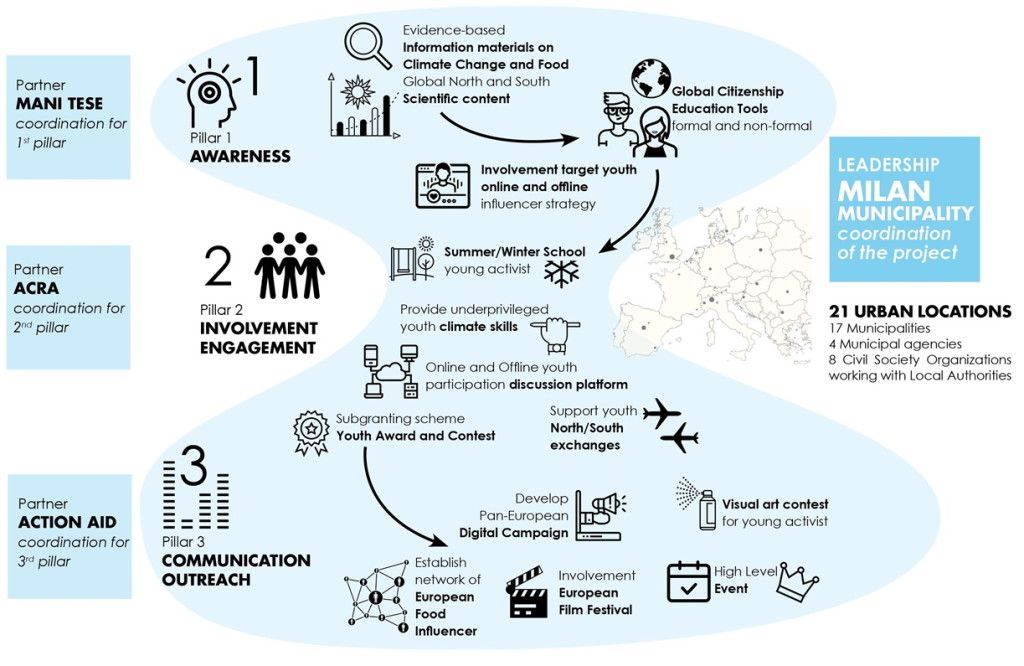Gender Equality Plan 2023-2024
URBAN2020 – an NGO for sustainable, smart, emphatic and meaningful development of cities

Introduction
This Gender Equality Plan (GEP) sets out organizational priorities for addressing gender equality, identifies activities and monitoring plans. Equality of opportunity is core to our mission at URBAN 2020 Association, and gender balance is a critical component to ensure fair access and equity for our staff involved in professional activities, urban research, cooperation, and management. Following international and internal standards, URBAN 2020 commits to promoting equality of opportunities between women and men in its principles and priorities.
URBAN 2020 is a non-governmental organization dedicated to enhancing the quality of life in Romanian and European cities through urban planning, smart development, and social innovation. Established with a focus on integrated planning, participation, and policy support, URBAN 2020 brings expertise in urban and regional planning processes, community engagement, and social inclusiveness. The organization’s main areas of activity include participation, policy support, and scenario development, fitting the advancement of dissemination activities, stakeholder involvement, and capacity building.
URBAN 2020 has demonstrated its expertise through participation in projects such as YPlan and GIS4Schools, providing valuable insights and methodologies for the development of sustainable urban environments. Additionally, projects like EUthMappers and BRIGHT highlight its proficiency in communication, stakeholder engagement, environmental civic engagement among youth, and promoting gender equality. Through its collaborative approach and commitment to fostering partnerships between the public sector, academia, and private entities, URBAN 2020 is poised to contribute effectively to the advancement of sustainable urban development practices.
The core values of URBAN 2020 are quality, accountability, creativity, innovation, integrity and trust, equality, collaboration, and a long-term vision. As an organization dedicated to urban development, policy design, and social cohesion, the high-level research conducted revolves around integrated, participatory, and smart-oriented solutions to urban challenges, both socio-economic and environmental.
URBAN 2020 aims to support the sustainable, smart, empathetic, and meaningful development of cities, especially Romanian cities, through various activities, projects, and initiatives. These initiatives include:
- Ensuring the quality of life, sustainability, and smart development of local communities at urban and regional levels in Romania and beyond.
- Supporting the participation of citizens and youth in decision-making, city life, and the redevelopment of urban spaces.
- Actively reducing the gaps between rural and urban areas and strengthening urban-rural linkages.
- Developing urban and rural communities through urban planning and architecture services and consultancy.
- Supporting good governance and partnerships between the public sector, academic institutions, and private sector research and companies.
- Encouraging social innovation and integration, including for disadvantaged groups and migrants.
- Reducing the divide between Romania and Western Europe and stimulating the exchange of experiences.
URBAN 2020 offers expertise in integrated planning, guiding participation and co-production processes, and organizing capacity-building and inclusion workshops. By working with youth and local communities, the organization aims to form new professional figures.
URBAN 2020 operates with a dynamic team dedicated to fostering sustainable urban development and ensuring gender equality in all its activities. The association is committed to adhering to the highest standards of equality, inclusiveness, and professional excellence in all its endeavors.
Company data overview
URBAN 2020 collects and monitors sex/gender disaggregated data on its personnel. Internal data collection and monitoring are conducted regularly, and reporting is done in compliance with the EU GDPR, given the organization’s status as a non-profit association. The collected data include the following:
| Indicator |
Values |
| The percentage share of men and women in URBAN 2020 Association |
- 3 male and 4 females, 42.86% of total and 52.17% respectively
|
| The percentage share of men and women in different personnel groups |
- 33% male and 67% female in executive leadership and top management;
- 42% male and 58% female in team leadership and research (7 in total);
- 1 administrative personnel (female)
|
| The percentage share of international personnel |
- 27% (Italy, France and Norway)
|
| The average age of personnel |
- 35.4 years, with 67% of personnel under the age of 30
|
| The academic attainment of personnel |
- 3 PhDs (2 females, 1 male); 1 PhDcs (1 male)
|
| Statistics on equal pay |
|
The GEP fundamentally promotes gender inclusion and balance in training, innovation, and research, ensuring fair and equitable career development opportunities for both male and female personnel, striving to limit the loss of talent and enhance solutions for gender imbalances.
As a non-governmental organization (NGO), URBAN 2020 has significantly supported the GEP design in stimulating gender culture change awareness and adherence to the United Nations’ Sustainable Development Goals. For URBAN 2020, this GEP provides policy guidelines on its engagement with international communities and professionals from different countries, as well as young researchers involved temporarily as Erasmus+ students in the organization.
This allows URBAN 2020 to address issues of gender inequalities and ensure diversity regarding sexual orientation, culture, and age during the implementation of projects and actions related to urban planning and research. The proposed path in this GEP facilitates treating both men and women equally without discrimination, supporting individuals’ freedom and appreciating each person’s role for the growth of the entire organization. This GEP ensures coherence and continuity of policies that URBAN 2020 is already pursuing through its design and planning actions and helps overcome challenges in achieving gender equality.
The structure of this GEP aligns with the five areas indicated by the European Commission regarding the identification of objectives, setting targets and measures to offer remedies for problems, resource and responsibility allocation, and timelines for undertaking the action.
The main goals of the URBAN 2020 GEP are to ensure:
- Equal opportunities in recruitment and terms of employment;
- That gender does not affect employees’ wages;
- Equal opportunities, rights, and obligations regardless of gender;
- A healthy work environment, free from gender-based violence, where everyone is treated professionally;
- A flexible work organization in which employees can combine and balance work with family life.
The initial analysis of gender equality issues has included a review of relevant policies and legislation, including the core Gender Equality Strategy 2020-2025 of the European Commission. The Strategy presents policy objectives and actions to make significant progress by 2025 towards a gender-equal Europe. The goal is “a Union where women and men, girls and boys, in all their diversity, are free to pursue their chosen path in life, have equal opportunities to thrive, and can equally participate in and lead the European society”.
The key objectives are:
- Ending gender-based violence;
- Challenging gender stereotypes;
- Closing gender gaps in the labour market;
- Achieving equal participation across different sectors of the economy;
- Addressing the gender pay and pension gaps;
- Closing the gender care gap and achieving gender balance in decision-making and politics.
In line with the GES 2020-2025, the goal of our policies is to set the principles of gender equality under which URBAN 2020 creates programs, processes, and practices towards the organization’s vision and to ensure that gender equality and women’s empowerment are central to our operations.
Transparency and trust, active management support, and agility are key factors towards the creation of a safe and equal working environment for women, which in turn promote efficiency, effectiveness, and successful outcomes.
Principles and Actions
Work-Life Balance
URBAN 2020 actively promotes flexibility in terms of working hours and conditions. Recognizing the importance of work-life balance, the organization ensures that employees can effectively manage their professional responsibilities alongside their personal lives. This commitment to flexibility is particularly vital in supporting the diverse needs of our multinational team.
Teleworking and Flexible Hours
Given the international nature of our projects and collaborations, teleworking has always been an integral part of our operations. Employees have the option to work remotely, which significantly enhances their ability to balance work with family and personal commitments. Flexible working hours are also promoted, allowing staff to adjust their schedules to accommodate various life situations, such as childcare, eldercare, and other personal responsibilities.
Simplified Processes and Reduced Bureaucracy
URBAN 2020 is committed to reducing unnecessary bureaucracy by streamlining processes and procedures. This approach not only improves operational efficiency but also frees up valuable time for employees, enabling them to focus on their core tasks and professional development. Simplifying administrative tasks and minimizing procedural burdens contribute to a more productive and satisfying work environment.
Support for Women’s Professional and Personal Goals
Women at URBAN 2020 are encouraged and supported in achieving their personal and professional objectives. The organization’s policies and culture foster an environment where women can thrive, ensuring they have the resources and flexibility needed to pursue both their career aspirations and personal goals. By setting a right balance between personal and work lives, URBAN 2020 helps women evolve as both individuals and professional leaders.
Diversity and Inclusion
URBAN 2020’s culture and values emphasize the importance of diversity in all its forms, including gender, ethnicity, and age. The organization is dedicated to eliminating career barriers for its employees, ensuring that everyone has equal opportunities for growth and advancement. This commitment to diversity not only enriches the workplace but also drives innovation and creativity, as diverse perspectives and experiences contribute to more effective solutions and better decision-making.
Gender Equality and Support Mechanisms
In addition to promoting work-life balance, URBAN 2020 implements specific measures to support gender equality within the organization. These measures include:
- Mentorship Programs: Providing mentorship opportunities to help women develop their careers and gain the skills and confidence needed for leadership roles.
- Professional Development: Offering training and development programs focused on enhancing skills and competencies, with particular attention to areas where women are underrepresented.
- Health and Well-being Initiatives: Implementing health and well-being programs that address the unique needs of women, such as maternity support, mental health resources, and flexible leave policies.
Monitoring and Continuous Improvement
URBAN 2020 continuously monitors the effectiveness of its work-life balance initiatives and gender equality measures. Regular feedback from employees is sought to identify areas for improvement and to ensure that the organization’s policies remain responsive to the evolving needs of its workforce. This commitment to continuous improvement helps maintain a supportive and inclusive work environment.
In conclusion, URBAN 2020’s dedication to work-life balance and gender equality is a cornerstone of its organizational culture. By fostering flexibility, reducing bureaucracy, and promoting diversity and inclusion, the organization creates a supportive environment where all employees can thrive, achieve their goals, and contribute meaningfully to the success of URBAN 2020.
The role of women in leadership and decision-making at URBAN 2020 is fundamental to the organization’s success at both the organizational and project levels. Since its establishment, URBAN 2020 has been committed to promoting gender equality and ensuring that women have equal opportunities to take on leadership roles and influence decision-making processes.
Equal Ownership and Leadership Roles
From its foundation, URBAN 2020 has been co-owned equally by directors of both genders. This foundational equality demonstrates the organization’s belief in and commitment to the capabilities of women in leadership positions. The presence of women in top leadership roles, such as the Deputy Director position, which is held by a woman, further affirms this commitment. By ensuring that women can freely unlock their career prospects and become leaders, URBAN 2020 fosters an environment where confidence and leadership skills are actively nurtured.
Transparent Operational Procedures
URBAN 2020 prioritizes transparency in its operational procedures and decision-making processes. By implementing clear and open processes, the organization builds trust and ensures that all employees, regardless of gender, have the opportunity to contribute to decision-making. This transparency is critical in addressing and overcoming any potential trust and security issues, allowing for a more inclusive and balanced approach to leadership.
Monitoring and Accountability
To maintain gender balance and equality in leadership, URBAN 2020 employs rigorous monitoring tools and practices. These tools are designed to track and evaluate the representation of women in leadership positions, ensuring that gender balance is not only achieved but also sustained over time. Regular reviews and assessments help identify any gaps or areas for improvement, allowing the organization to take proactive steps to address them.
Leadership Development and Support
URBAN 2020 invests in the development and support of female leaders through various initiatives, including:
- Leadership Training Programs: Offering training and development programs specifically designed to enhance the leadership skills of women, equipping them with the tools and confidence needed to take on senior roles.
- Mentorship and Coaching: Providing mentorship and coaching opportunities to women, helping them navigate their career paths and overcome any challenges they may face in their journey to leadership.
- Networking Opportunities: Creating platforms for women to network, share experiences, and learn from each other, fostering a supportive community of female leaders within the organization.
Inclusive Decision-Making
Inclusion is a core value at URBAN 2020, and this extends to decision-making processes at all levels. By actively involving women in key decisions, the organization ensures that diverse perspectives are considered, leading to more well-rounded and effective outcomes. This inclusive approach not only benefits the organization but also empowers women to have a meaningful impact on the direction and success of URBAN 2020.
Promoting Gender Equality Beyond the Organization
URBAN 2020’s commitment to gender balance in leadership and decision-making extends beyond the organization itself. Through its projects and collaborations, the organization advocates for gender equality and encourages partners and stakeholders to adopt similar practices. By promoting gender balance in urban planning and development initiatives, URBAN 2020 contributes to creating more equitable and inclusive communities.
Recruitment and Career Progression
Studies have shown that women tend to apply for jobs only when they feel they meet 100% of the requirements, unlike men who may apply with lower self-assessed qualifications. Recognizing this, URBAN 2020 designs its job criteria to be accessible and attractive to both genders, ensuring inclusivity throughout the recruitment process.
Inclusive Job Postings
To make job postings more inclusive, URBAN 2020 removes gender-coded language and ensures that all communications are welcoming to candidates of all genders. Job advertisements are posted on social media and the organization’s website, emphasizing inclusivity and equal opportunity. The language used is carefully chosen to avoid any unconscious bias that might deter qualified candidates from applying.
Equal Interview Processes
During the interview process, URBAN 2020 ensures that all candidates, regardless of gender, are asked identical questions. This standardized approach helps eliminate bias and ensures that each candidate is evaluated based on their skills, experience, and suitability for the role.
Transparent Promotion and Appraisal Mechanisms
URBAN 2020 fosters a transparent environment in its recruitment, promotion, and appraisal mechanisms. By providing clear and open processes, the organization builds trust and confidence among employees. Women, feeling secure and confident, are more likely to develop their careers fully and reach their potential. The organization’s commitment to transparency helps create an equal environment where everyone can thrive and progress based on merit.
Combating Gender Imbalances
URBAN 2020 implements a comprehensive scheme to combat gender imbalances in the workplace. This includes mentorship programs, professional development opportunities, and initiatives aimed at supporting women’s career progression. By addressing barriers to advancement and providing the necessary support, URBAN 2020 ensures that women can achieve their career goals and contribute meaningfully to the organization.
Integration of the Gender Dimension into Research & Innovation
URBAN 2020 is actively involved in numerous European programs such as Horizon Europe and Eramus + and Driving Urban Trantion. In these projects, the organization integrates gender considerations into research and innovation processes to ensure that outcomes are equitable and inclusive.
Gender-Inclusive Management Structures
In project proposals, URBAN 2020 includes a dedicated section on management structure designed to meet the objectives of all stakeholders. This approach creates strong consortium engagement in project management. Women hold a significant number of project management positions, making key decisions on the development and overall management of projects. This gender-inclusive leadership ensures diverse perspectives are included in decision-making processes.
Embedding Gender Analysis in Projects
URBAN 2020’s projects incorporate gender analysis at various stages, including:
- Formulating Research and Innovation (R&I) Questions: Ensuring that research questions address gender-specific issues and consider the impacts on different genders.
- Designing Methods for Data Collection: Using gender-sensitive methods to acquire and elicit data and information.
- Interpreting Data and Understanding Impacts: Analyzing data with a gender perspective to understand the differential impacts on men and women.
- Engineering Innovation Processes and Outputs: Developing innovations that are inclusive and address the needs of all genders.
- Communicating and Disseminating Results: Sharing project outcomes in ways that are accessible and relevant to diverse audiences, ensuring gender considerations are highlighted.
Ethical Implementation and Gender-Related Ambitions
URBAN 2020 is committed to ethical project implementation, ensuring that solutions do not discriminate or perpetuate gender imbalances. The organization uses various tools to address sex, gender, and equality issues, aligning with a gendered and inclusive approach to innovation. This commitment ensures that projects contribute to broader societal goals of gender equality and inclusiveness.
By integrating gender dimensions into research and innovation, URBAN 2020 not only adheres to ethical standards but also enhances the quality and relevance of its projects. This approach ensures that the solutions developed are beneficial and accessible to all members of society, promoting gender equality and inclusive development.
Final Provisions
The Plan has been approved by the Association management and is revised on a yearly basis. The current revision is V.01 / 2024.

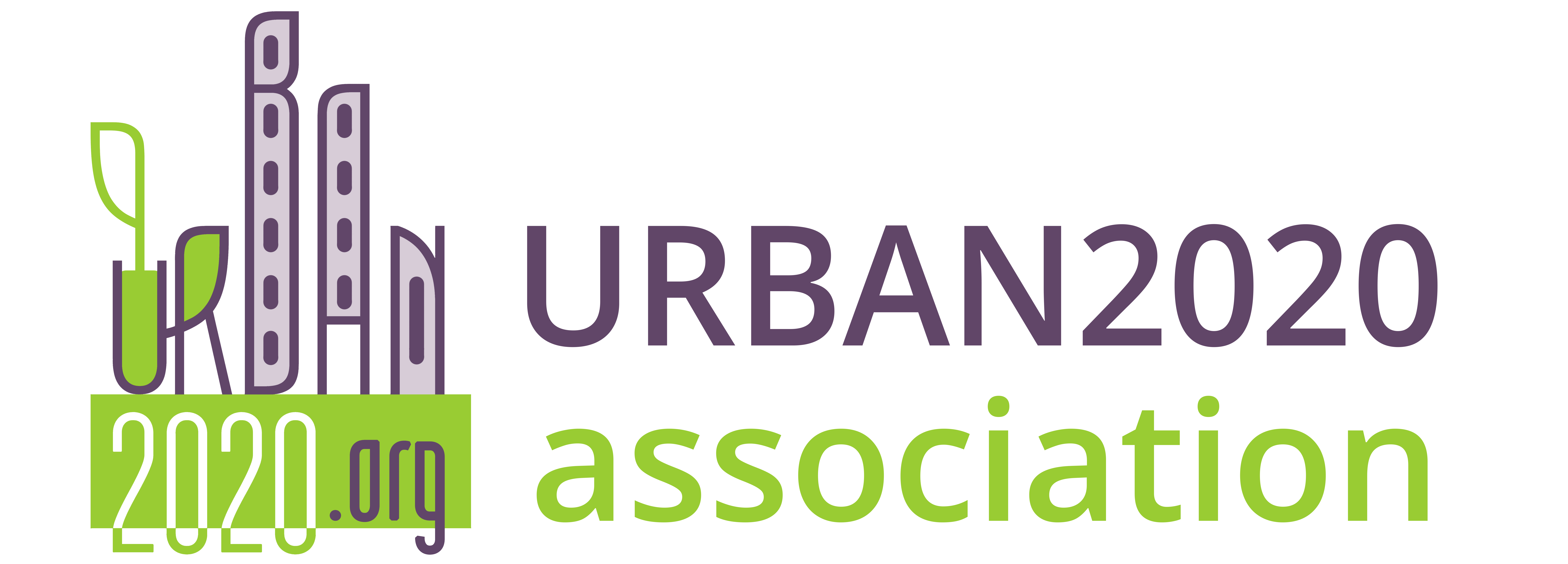

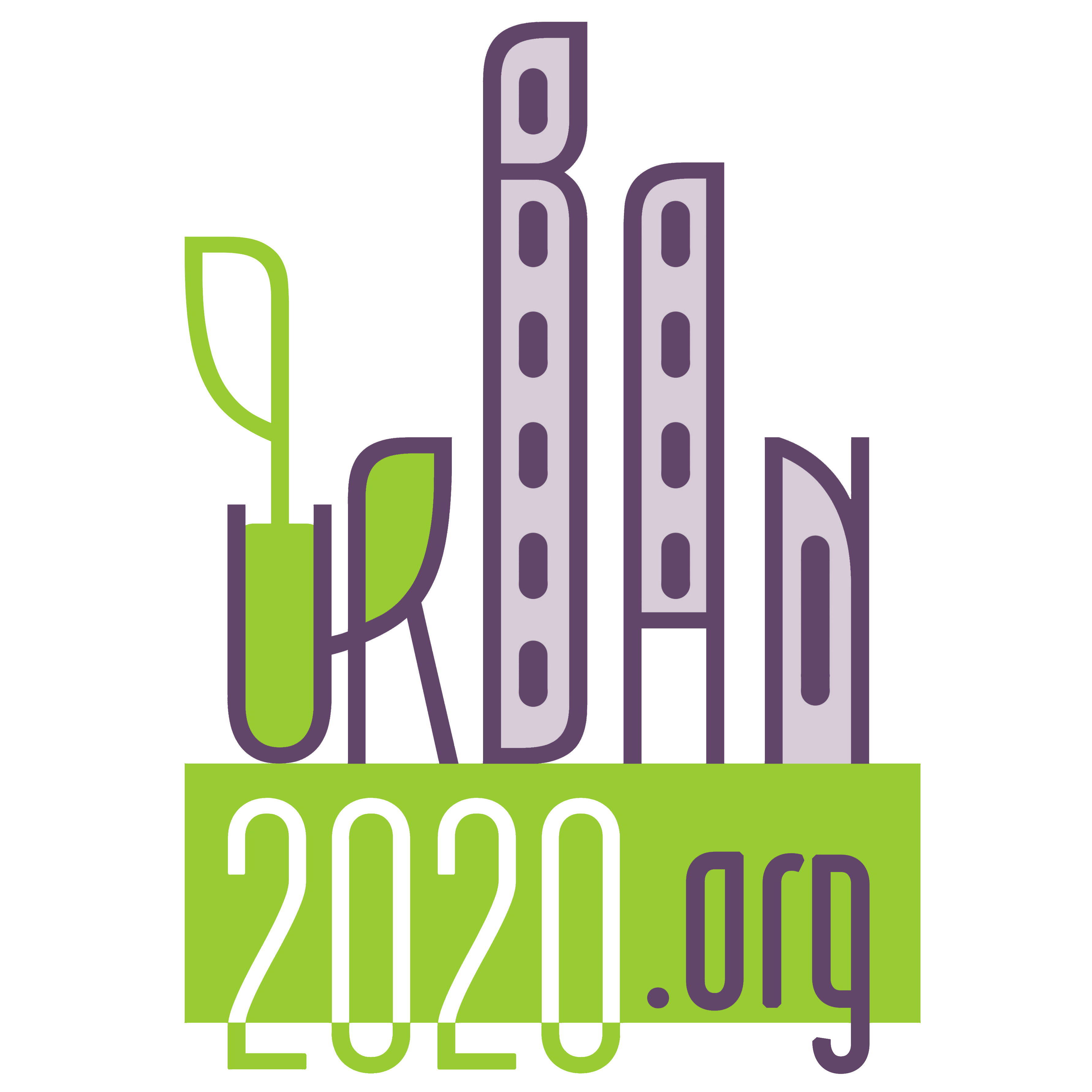





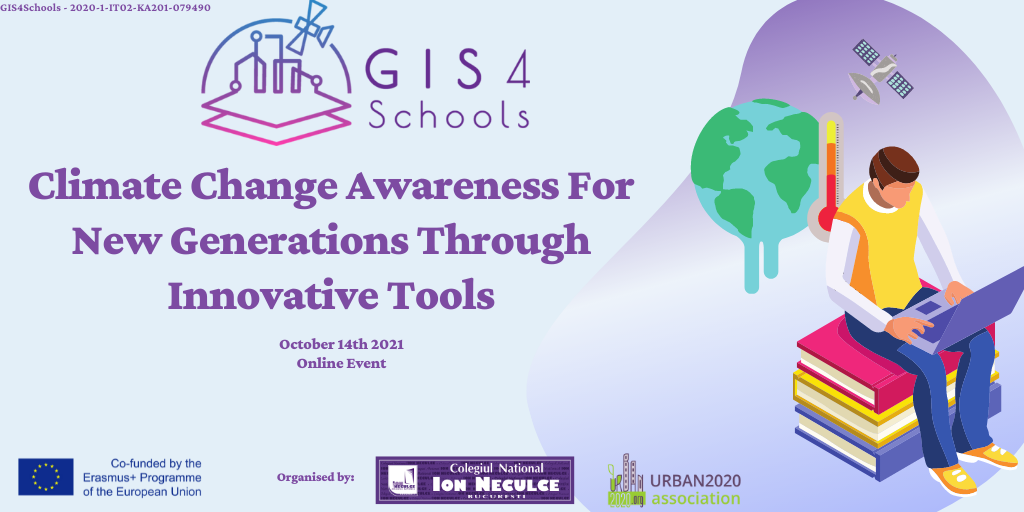 The webinar “GIS4Schools: Climate Change Awareness for New Generations through Innovative Tools” will take place on October 14th from 11 to 13:30 pm EET, as part of the suite of Local Multiplier Events. The webinar is organized by Colegiul Național „Ion Neculce” in collaboration with Urban2020 Association.
The webinar “GIS4Schools: Climate Change Awareness for New Generations through Innovative Tools” will take place on October 14th from 11 to 13:30 pm EET, as part of the suite of Local Multiplier Events. The webinar is organized by Colegiul Național „Ion Neculce” in collaboration with Urban2020 Association.